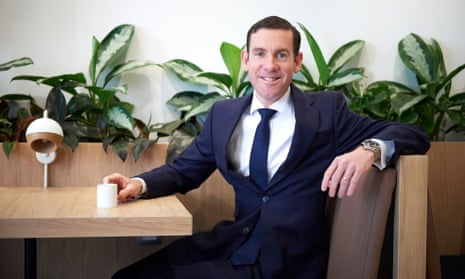The collapsed finance firm Greensill Capital was given access to a government-backed loan scheme without being subjected to detailed checks, leaving UK taxpayers facing a £335m loss, Whitehall’s spending watchdog has found.
The National Audit Office said the government-owned British Business Bank [BBB] carried out limited due diligence on the firm’s application before giving permission to access the Coronavirus Large Business Interruption Loans Scheme (CLBILS).
In a report released on Wednesday, bank officials said they were also subjected to “unusual” levels of interest from the Department for Business, Energy & Industrial Strategy [BEIS] during the accreditation process, as ministers hoped that Greensill’s loans could halt the collapse of Sanjeev Gupta’s steel empire.
The bank stopped Greensill’s access to the loan scheme after discovering that six of the seven loans handed out by Greensill Capital went to Gupta’s firms on the same day, the report revealed.
Greensill Capital collapsed into administration in March, putting thousands of jobs at risk and triggering an international political and financial scandal.
The supply chain finance firm is the focus of a Whitehall inquiry after it emerged that its adviser and shareholder, the former prime minister David Cameron, lobbied current ministers including the chancellor, Rishi Sunak, for access to another government-backed loan scheme.
Auditors examined the bank’s decision to allow Greensill to access business support schemes, which were set up to give struggling firms swift access to financial assistance during the Covid-19 crisis.
Quick GuideWhat is the Greensill lobbying scandal?
Show
What is Greensill Capital?
Set up by the Australian financier Lex Greensill, the firm specialises in supply-chain finance, which settles business bills immediately for a fee, assisting with the issue of late payments. Greensill began working with the NHS as part of Citibank in 2012, but then set up his own firm. This collapsed in March.
How is David Cameron involved and what did he do?
Cameron was prime minister when Greensill started to seek government work, although the Australian was reportedly first brought in by Jeremy Heywood, who was cabinet secretary at the time. But in 2016, after leaving office, Cameron became an adviser to Greensill Capital. He was given share options reportedly worth tens of millions of pounds.
Last year he sent “multiple” texts to Rishi Sunak, the chancellor, and “informally” phoned two other Treasury ministers, asking for Greensill Capital to get the largest possible allocation of government-backed loans under the Covid corporate financing facility, or CCFF. He also lobbied a No 10 aide, and in 2019 took Greensill to a “private drink” with Matt Hancock, the health secretary.
What was the government response?
Text replies from Sunak in 2019, released after a freedom of information request, show that in April last year the chancellor told Cameron he had “pushed the team” in the Treasury to see if he could arrange full access to CCFF loans. Other released documents show Treasury officials had a series of meetings with Greensill Capital but eventually refused it access to the CCFF. The company was later accredited to the coronavirus large business interruption loan scheme (CLBILS), handing it the ability to offer government-backed loans of up to £50m.
What else happened?
Greensill became so embedded within Cameron’s Downing Street; he had a No 10 business card calling him a “senior adviser” and was nominated by Haywood for a CBE.
The government’s chief commercial officer, Bill Crothers, began working as an adviser to Greensill Capital in 2015 – while still employed in the civil service. Remarkably, he was given official approval to do this. Boris Johnson has declined to rule out the possibility that more officials could have been connected to the company.
What are the concerns?
There are questions over why the government, which does not have cashflow problems, needed to use supply chain finance.
Cameron’s role is under particular scrutiny. He appears to have used personal contacts to seek preferential treatment for a company in which he had a financial stake.
Sunak’s pledge that he had “pushed the team” to help also raised eyebrows.
Finally, the dual role of Crothers has prompted new worries about a revolving door between Whitehall and private companies that then benefit from government contracts.
Peter Walker Political correspondent
In a process streamlined to speed up the pumping of money into a crisis-hit economy, the bank conducted only “limited due diligence” on applications, the report said. With minimal checks, it gave permission to Greensill to lend up to £400m under the large business lending scheme.
“The Bank told us it accepted as accurate the key information applicants provided, including Greensill. For example, it carried out cross-referencing to Greensill’s audited accounts but did not test in detail Greensill’s claims of where it would lend,” the report said.
In an indication of the pressure that bank officials were under to approve Greensill for the loan scheme, BEIS officials showed an “unusual” level of interest in Greensill’s accreditation, auditors said.
“The department made eight email enquiries of the Bank over 19 weeks on the status of Greensill’s accreditation and whether it might be accredited to lend more than £50m per borrower,” the report said.
In an email dated 9 June 2020, one BEIS official wrote that “unfortunately, Spads [politically appointed special advisers] are pushing back and want information about when Greensill will be accredited to offer loans of up to £200m”.
The bank set Greensill a maximum loan limit of £50m to each borrower group, the report said, but suspended the firm’s involvement just four months after its application was approved.
Greensill was accused by the bank of contravening an agreement by giving six loans worth £240m to different parts of Gupta’s business empire on the same day.
At a meeting with the bank, Greensill officials claimed they had not broken any rules and insisted the loans to Gupta-connected firms were supported by unnamed political figures.
“Greensill said it had received ‘political steers’ that its support for the steel industry was welcome,” the report said.
Labour said the NAO report should prompt further examination of why officials and ministerial advisers took such a close interest in Greensill, and demanded to know if ministers were behind their “unusual” interest in the bank.
Seema Malhotra, the shadow business minister, said: “It’s crucial we get to the truth about the decision to accredit Greensill to the CLBILS loan scheme and the company’s relationship with GFG Alliance. This decision meant hundreds of millions of pounds of taxpayers’ money was put at risk. The government must come clean.”
Responding to the report, Meg Hillier MP, the chair of the public accounts committee, said: “Sadly, it is clear that some of this mess could have been avoided with more thorough due diligence on Greensill upfront.
“As with many of the decisions made during the pandemic, there are important lessons for the government about the trade-off between speed and accuracy in its emergency response.”
Catherine Lewis La Torre, the CEO at the British Business Bank, acknowledged that applying a less streamlined process might have led the Bank to further question Greensill’s application.
“A less streamlined accreditation process would, however, have been lengthier, meaning that fewer lenders may have been accredited, and fewer businesses would have received the critical finance they needed,” she said.
A BEIS spokesperson said: “As the NAO report makes clear, BEIS officials requested updates on Greensill’s accreditation process so the department could assess whether jobs were at risk at Liberty Steel and its supply chain. It is perfectly normal – and right – that government gathers all relevant information when approached for taxpayer funds to support a business.
“There is no suggestion whatsoever that BEIS ministers or officials sought to influence the British Business Bank’s decision. All decisions taken by the bank are made independently of government.”









